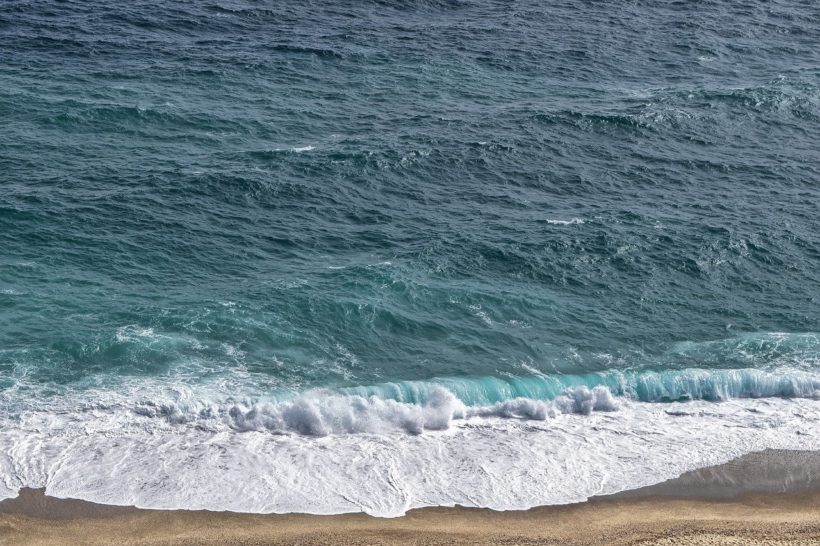The circular economy is presented as the most effective solution to solve water scarcity, one of the great obstacles that the future holds. The benefits of productive use, in fact, are already evident, since by irrigating with treated wastewater we can solve the problem twice over: we provide water and also nutrients.
Article by Evgenia Tsianou and Carmen Galindo for Ethic
-Come on, Jorge, run! Pee on her, a jellyfish has stung Teresa in the water!
-No, it’s OK, it doesn’t hurt that much.
That’s what I said to my grandmother to stop my brother from peeing on me. How disgusting. To that, my grandmother always replied that urine is our own thing and that, if I don’t want to be disgusted by it, I should be careful about what I eat. Thirty years later, I found ‘Aurin’, a bottle of urine for sale that is not used for jellyfish stings, but for plants, i.e. for growing our food. A liquid containing all the valuable nutrients available in our urine that is used as fertiliser.
Our food is often grown with urine and even with the excrement of goats or pigs; goat manure, in fact, is beneficial for soils and increases fertility. In some countries they use ‘human manure’ – i.e. domestic wastewater – for irrigation. It is a mixture of water originating from the shower, kitchen, toilet or washing machine. In Cyprus, since 2004, the wastewater collection network has undergone various treatments to produce reclaimed water (which is then used to irrigate agricultural fields and green areas).
Israel is a leader in the use of reclaimed water for agriculture. With investments of more than $700 million over the past 20 years, wastewater reclamation has provided Israel with an avenue to stimulate economic growth while strengthening the country’s resilience to extreme drought conditions caused by climate change. However, there is a gap in water management: in our linear economy model, with the take-use-discharge approach, we obtain water from groundwater, rainfall or any other source for use in agriculture, industry or households. Water scarcity is knocking on the door of southern Europe and is related to both water quantity and water quality.
Wastewater reclamation has provided Israel with economic growth, but also the country’s resilience to climate change conditions.
One of the main misconceptions is that this wastewater is not exactly waste as such, but includes nutrients and has received advanced treatment. We ingest food and we defecate it, but our food has nutrients in it, so does our faeces. Agriculture requires not only water but also fertilisers, so by irrigating with treated wastewater, we solve the problem twice: water and nutrients – this is one of the solutions of the circular economy.
Are we ready to remove the term ‘waste’ from our vocabulary? In the future, it may no longer exist in the dictionary. In the circular economy that will take hold in the coming decades, we can think of cities with vertical green gardens that produce food, treat wastewater and use the reclaimed water to irrigate their own plants. Cities will produce food from their own resources.
Technologically it is already possible, as scientists, together with industry and the public sector, are developing pilot programmes in these systems. The FIT4REUSE and HYDROUSA projects are developing a case study on the Greek island of Lesvos where the system recovers fertiliser, biogas and reclaimed water for irrigation from the municipality’s wastewater.
Water scarcity, which is already knocking on the door of southern Europe, is related to both water quantity and water quality.
At the political level, in southern Europe, where water is a challenge, national regulations have already been put in place: this has been the case in Spain since 2007 and in Greece since 2011. Since last year, the EU Regulation 2020/741 on water reuse for irrigation – and its minimum requirements – has been adopted; it is expected to be implemented as early as June 2023. In this regard, the SUWANU project offers a free module in English, Spanish, French, Italian and five other languages with the strategic plans and the new EU regulation.
But is our society ready to eat food grown with human manure? People today often develop a psychological barrier – a sense of disgust – for the emotion of disgust associated with the water source. The challenges for more effective water management are largely social. The ‘disgust factor’ needs to be addressed to promote understanding between different stakeholders. The Water Scarcity programme of the European Institute of Innovation and Technology (EIT) brings together water experts and stakeholders from different areas of activity to interact and mitigate the emerging challenge of water scarcity in Southern Europe. The programme includes the online event Water Academies, with sessions targeting the agri-food sector, water companies, municipalities, the tourism sector, manufacturing industries, SMEs, RTOs, university students, journalists and policy makers, among others, in order to create a productive dialogue on this important topic.
Evgenia Tsianou is a science communicator at DISSCO. Carmen Galindo Rodríguez is project manager at EIT Food South.












